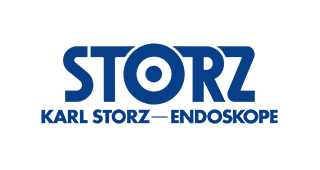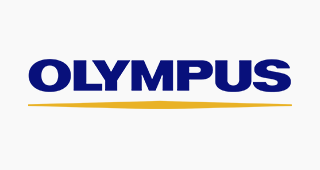An Undissolved Urological Myth – Health-Related Quality of Life after Radical Cystectomy


REGULAR CONTENT
To analyse the impact of perioperative complications and complex treatment courses on postoperative health-related quality of life (HRQOL) after radical cystectomy (RC) and continent (ONB) or incontinent (IC) urinary diversion at multiple prospective time points.
Methods
A total of 121 consecutive patients underwent RC with curative intent between 2013 and 2014. HRQOL was prospectively assessed preoperatively, after 3 and 12 months, using the QLQ-C30 questionnaire. The impact of complex perioperative treatment courses including cases requiring surgical re-interventions was retrospectively assessed using Martin criteria and the Clavien–Dindo scale. Urinary continence was determined using the validated ICIQ-SF questionnaire. Statistical analysis included Kruskal–Wallis ANOVA, Spearman’s rank correlation, and ordinal regression models (p < 0.05).
Results
A total of 100 patients underwent further analysis. Physical functioning (PF), role functioning (RF), and global health status (GHS) scores were higher in the ONB subgroup both preoperatively (p < 0.001, 0.010, 0.048) and 3 months after RC (p = 0.003, 0.048, 0.019). Clavien complications ≥III led to reduced PF levels after 3 months (p = 0.050) without effect on GHS (p = 0.825). Operating time and length of critical care monitoring correlated with 3 months pain scores in the ONB subgroup (p = 0.003, 0.009) without affecting GHS (p = 0.603, 0.653). Continent urinary diversion was an independent predictor of increased HRQOL after 3 months (p = 0.021), however, not after 12 months (p = 0.803).
Conclusions
Patients receiving an IC have lower PF, RF, and GHS scores than those receiving ONB. Perioperative complications and complicated treatment courses can affect HRQOL subdomains but do not significantly impact the GHS. ONB is an independent predictor for better overall HRQOL 3 months, but not 12 months after RC.
Keywords
Cystectomy Quality of life Orthotopic neobladder Bladder cancer Ileum conduit
Abbreviations
ECOG
Eastern Cooperative Oncology Group
EORTC
European Organization for Research on Treatment of Cancer
FSFI-6
Female Sexual Function Index
HRQOL
Health-related quality of life
IC
Ileum conduit
ICU
Intensive care unit
ICIQ-SF
International Consultation on Incontinence Questionnaire short form
IIEF-5
International Index of Erectile Function Questionnaire
ONB
Neobladder
QLQ-C30
Quality of Life Questionnaire C30
To analyse the impact of perioperative complications and complex treatment courses on postoperative health-related quality of life (HRQOL) after radical cystectomy (RC) and continent (ONB) or incontinent (IC) urinary diversion at multiple prospective time points.
Methods
A total of 121 consecutive patients underwent RC with curative intent between 2013 and 2014. HRQOL was prospectively assessed preoperatively, after 3 and 12 months, using the QLQ-C30 questionnaire. The impact of complex perioperative treatment courses including cases requiring surgical re-interventions was retrospectively assessed using Martin criteria and the Clavien–Dindo scale. Urinary continence was determined using the validated ICIQ-SF questionnaire. Statistical analysis included Kruskal–Wallis ANOVA, Spearman’s rank correlation, and ordinal regression models (p < 0.05).
Results
A total of 100 patients underwent further analysis. Physical functioning (PF), role functioning (RF), and global health status (GHS) scores were higher in the ONB subgroup both preoperatively (p < 0.001, 0.010, 0.048) and 3 months after RC (p = 0.003, 0.048, 0.019). Clavien complications ≥III led to reduced PF levels after 3 months (p = 0.050) without effect on GHS (p = 0.825). Operating time and length of critical care monitoring correlated with 3 months pain scores in the ONB subgroup (p = 0.003, 0.009) without affecting GHS (p = 0.603, 0.653). Continent urinary diversion was an independent predictor of increased HRQOL after 3 months (p = 0.021), however, not after 12 months (p = 0.803).
Conclusions
Patients receiving an IC have lower PF, RF, and GHS scores than those receiving ONB. Perioperative complications and complicated treatment courses can affect HRQOL subdomains but do not significantly impact the GHS. ONB is an independent predictor for better overall HRQOL 3 months, but not 12 months after RC.
Keywords
Cystectomy Quality of life Orthotopic neobladder Bladder cancer Ileum conduit
Abbreviations
ECOG
Eastern Cooperative Oncology Group
EORTC
European Organization for Research on Treatment of Cancer
FSFI-6
Female Sexual Function Index
HRQOL
Health-related quality of life
IC
Ileum conduit
ICU
Intensive care unit
ICIQ-SF
International Consultation on Incontinence Questionnaire short form
IIEF-5
International Index of Erectile Function Questionnaire
ONB
Neobladder
QLQ-C30
Quality of Life Questionnaire C30






